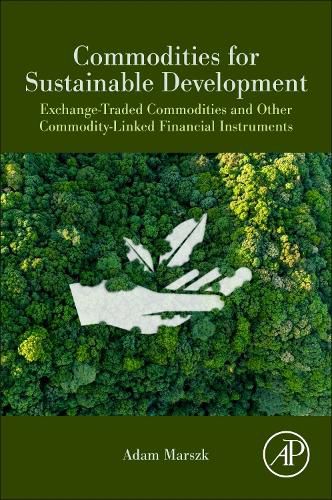Readings Newsletter
Become a Readings Member to make your shopping experience even easier.
Sign in or sign up for free!
You’re not far away from qualifying for FREE standard shipping within Australia
You’ve qualified for FREE standard shipping within Australia
The cart is loading…






Commodities for Sustainable Development: Exchange-Traded Commodities and Other Commodity-linked Financial Instruments offers highly focused insights into commodities investing inline with sustainability and ESG principles. It uniquely focuses on commodities in sustainable/ESG investment portfolios, with the exposure gained through the units of ETCs, also providing an up-to-date reviews of literature and theoretical concepts. Sections explain the main features of ETCs and compare them to other similar financial products-especially ones used for commodities investing-indicating their relative strengths and weaknesses. Additional sections discusses the possible impact of ETCs on related markets, including underlying assets and those derived from empirical and theoretical examinations.
The empirical analysis presented in the book covers all ETCs available globally, thus offering valuable insights into the often-understudied markets. This book serves as a valuable resource for a wide range of readers-researchers, students, instructors, and professionals alike-due to its theoretical and empirical outline of the commodities-linked financial instruments, particularly ETCs.
$9.00 standard shipping within Australia
FREE standard shipping within Australia for orders over $100.00
Express & International shipping calculated at checkout
Stock availability can be subject to change without notice. We recommend calling the shop or contacting our online team to check availability of low stock items. Please see our Shopping Online page for more details.
Commodities for Sustainable Development: Exchange-Traded Commodities and Other Commodity-linked Financial Instruments offers highly focused insights into commodities investing inline with sustainability and ESG principles. It uniquely focuses on commodities in sustainable/ESG investment portfolios, with the exposure gained through the units of ETCs, also providing an up-to-date reviews of literature and theoretical concepts. Sections explain the main features of ETCs and compare them to other similar financial products-especially ones used for commodities investing-indicating their relative strengths and weaknesses. Additional sections discusses the possible impact of ETCs on related markets, including underlying assets and those derived from empirical and theoretical examinations.
The empirical analysis presented in the book covers all ETCs available globally, thus offering valuable insights into the often-understudied markets. This book serves as a valuable resource for a wide range of readers-researchers, students, instructors, and professionals alike-due to its theoretical and empirical outline of the commodities-linked financial instruments, particularly ETCs.